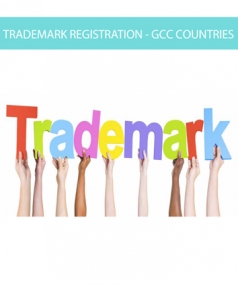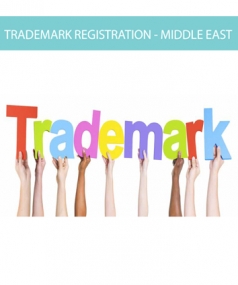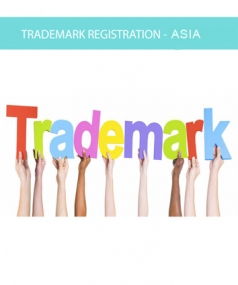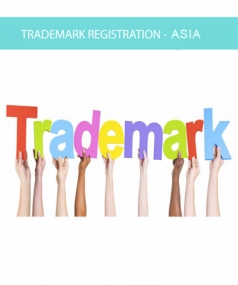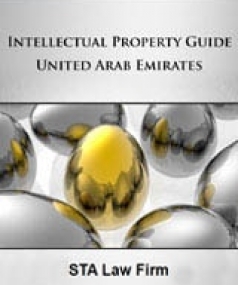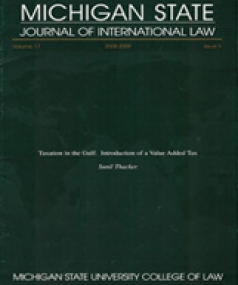Navigating the UAE’ s Franchise Frontier: Strategic Legal Insights for International Brands
Where global brands converge on a market shaped by tourism-fueled retail and cultural diversity, the United Arab Emirates (the UAE) offers a compelling— yet legally intricate— platform for franchising expansion. In the absence of a dedicated franchise statute, the UAE’ s legal regime is anchored by the the Commercial Agencies Law (Federal Law Number 3 of 2020, as amended by Decree-Law Number 11 of 2023), the Civil Transactions Law (Federal Law Number 5 of 1985), and an expanding body of competition and digital regulation.
Within this framework, franchise agreements are more than commercial instruments: exclusivity provisions may activate statutory agency protections, while termination disputes often test contractual foresight and raise complex legal challenges with long-tail implications. For international franchisors, the UAE’ s promise— its digitally connected consumer base and progressive regulatory outlook— is tempered by the need for precision in structuring agreements, safeguarding intellectual property, and managing agency registration risks.
As digital platforms, ESG-driven supply chains, and intensifying regulatory scrutiny reshape global franchise models, this article explores how brands can build resilient, future-proof strategies to thrive in the GCC’ s most dynamic legal environment.
1. What is the legal framework for franchising in the UAE?
The UAE’ s franchise landscape remains a magnet for global brands, where the absence of a consolidated legal framework elevates the role of meticulous contract structuring in managing risk.
Franchising is not expressly defined under UAE law. In practice, it is regulated through a combination of:
-
The Commercial Agencies Law, which applies when exclusive distribution is granted to UAE nationals or wholly owned UAE entities and the relationship is registered with the Ministry of Economy.
-
The Civil Transactions Law, which governs contractual relationships generally.
-
Emirate-level regulations, which oversee business licensing and sector approvals.
-
Free zone regimes, such as the DIFC Franchise Law Number 10 of 2020, which requires written agreements and prescribes certain disclosures, and the ADGM, which applies English common law principles.
-
The Competition Law, which applies to anti-competitive restrictions in franchise agreements.
Since 2020, foreign direct investment reforms have permitted 100% foreign ownership in many sectors, allowing franchisors to enter the market without local equity partners.
Strategic Considerations
Franchisors must tailor their approach to jurisdictional diversity across mainland and free-zone regimes. While federal law sets a general legal framework, enforceability, licensing, and compliance requirements differ between Emirates and free zones. Precise contractual drafting, proactive IP protection, and clear dispute-resolution clauses are essential to navigating this environment.
Practical Guidance
Align franchise structures with the chosen jurisdiction’ s legal framework. Use DIFC/ADGM regimes for English-law-based enforcement and adopt UAE-compliant models for onshore operations.
2. Is registration of franchise agreements, trademarks, or other documents required?
Legal Framework
Franchise agreement registration is not mandatory. However, registration becomes transformative when the franchise qualifies as a commercial agency:
▪ Registered agencies (with the Ministry of Economy) give franchisees exclusive rights and termination protections.
▪ Unregistered franchises retain greater flexibility but lack statutory protections.
Franchise vs. Commercial Agency
Franchise agreements may trigger classification under the Commercial Agencies Law if they involve exclusive distribution by a UAE national or a 100% UAE-owned entity. Where such arrangements are registered with the Ministry of Economy, the local agent gains statutory benefits, including exclusive territorial rights, access to compensation on termination, and dispute resolution via the Commercial Agencies Committee. Accordingly, registration is optional but legally transformative — and often avoided by franchisors seeking to preserve contractual flexibility.
Trademark Registration
Franchisors must register their trademarks under the UAE Trademark Law (Federal Decree-Law Number 36 of 2021) to secure enforceability and prevent third-party misuse. The UAE follows a " first-to-file" system; unregistered marks lack protection. Franchisors should also consider recording license agreements with the Ministry of Economy.
Ancillary Documents
Although not subject to formal registration, ancillary materials— training manuals, standard operating procedures (SOPs), and brand guidelines— should be documented and contractually referenced. This reinforces operational consistency, assists enforcement, and demonstrates franchisor oversight if challenged in local courts.
Free Zones
DIFC: Franchise Law Number 10 of 2020 governs franchising and requires franchise agreements to be in writing and meet minimum content standards, but does not mandate registration.
ADGM: has no standalone franchise regime; common law principles apply, and no registration is required.
Strategic Considerations
Registering trademarks early secures brand protection. Avoiding agency registration preserves termination flexibility but forgoes statutory benefits. Onshore and offshore strategies should be weighed against brand control and dispute risk.
Practical Guidance
Careful drafting — especially around exclusivity, branding, and dispute forums — is critical to prevent unintended classification as a registered commercial agency or to mitigate IP risk through enforceable rights. Secure trademark registrations prior to market entry.
3. What formalities govern franchise agreements?
Under UAE federal law, no specific formalities are mandated for franchise agreements beyond general contractual requirements under the Civil Transactions Law (offer, acceptance, lawful object, and consent).
However:
-
Registered agencies must be in writing.
-
DIFC requires signed, written agreements with mandatory disclosures.
-
No notarization or Arabic language requirement applies, but Arabic translations are advisable for enforcement in onshore courts.
Strategic Considerations
The absence of formalities allows flexible, tailored agreements but increases risk of ambiguity. Detailed operational manuals, performance obligations, audit rights, and clear dispute clauses can reduce exposure to disputes and inconsistent enforcement
Practical Guidance
Adopt written agreements with detailed compliance terms, even where not legally required. Include manuals and quality control provisions, and audit-right clauses to demonstrate ongoing franchisor supervision.
4. What are typical market entry models and structuring considerations for franchisors?
Post-FDI reforms, franchisors can structure UAE market entry through:
-
Onshore LLCs: Allow 100% foreign ownership in many sectors; well-suited for scalable retail operations. These entities may be subject to the Commercial Agencies Law if exclusivity is granted and the arrangement is registered.
-
Branch Offices: Permit direct operations without a separate legal entity but require licensing by the Department of Economy and Tourism.
-
Free Zone Entities: Used for IP ownership, regional oversight, or limited-scope operations. Entities in DIFC or ADGM are favored for holding IP and entering into franchise agreements governed by common law.
-
Direct Franchising: Involves entering franchise agreements without establishing a local entity; best suited for non-exclusive models. It can raise practical challenges around tax, sector approvals, and royalty repatriation.
Tax considerations include:
-
VAT: 5% VAT applicable to most franchise fees.
-
Corporate Tax: 9% corporate tax as of 2023, subject to thresholds and exemptions.
-
Free Zone Exemptions: Free zones may offer tax exemptions, subject to substance requirements.
Strategic Considerations
Onshore LLCs are ideal for consumer-facing retail networks, while DIFC/ADGM entities serve IP-focused or English-law enforcement strategies. Local partners can expedite approvals and market entry but increase complexity around agency classification and termination risk
Practical Guidance
Tailor structuring to commercial objectives: use onshore LLCs for broad retail expansions; use DIFC/ADGM vehicles for IP holding and English-law enforcement. Evaluate tax impact on fee and royalty models and confirm sector-specific licensing requirements.
5. How are franchisor– franchisee relationships regulated in practice?
Legal Framework:
Although largely contractual, several statutory obligations arise:
-
The Civil Transactions Law imposes a duty of good faith (Article 246)
-
The Commercial Agencies Law grants protections to registered franchisees (e.g., exclusivity, compensation upon termination).
-
DIFC imposes disclosure and procedural obligations.
Strategic Considerations
Imbalanced or unclear contracts may be challenged under good faith obligations. Registered agencies are difficult to terminate without compensation. Dispute escalation clauses (negotiation, mediation, arbitration) can reduce adversarial outcomes.
Practical Guidance
Draft balanced franchise agreements with clear performance obligations, step-by-step dispute handling procedures, and a designated arbitration forum (DIAC, DIFC-LCIA, or ADGM Arbitration Centre) to manage forum risk.
6. Are there restrictions on non-compete or exclusivity clauses?
Non-compete and exclusivity clauses are generally enforceable but must comply with:
The Competition Law, which prohibits anti-competitive conduct.
General Contract principles require proportionality and reasonableness under general contract principles.
Strategic Considerations
Draft restrictions narrowly by territory, time, and scope. Excessive exclusivity can contravene competition rules or inadvertently trigger agency classification. Monitor evolving enforcement trends in strategic sectors
Practical Guidance
Use precise language: limit non-competes to the relevant geography and duration. Seek legal review for high-market-share or regulated sectors to ensure compliance
7. How are franchise agreements terminated and how are disputes typically resolved?
Termination and dispute resolution in UAE franchising require strategic foresight to navigate legal constraints and enforcement challenges.
Legal Framework
The Commercial Agencies Law restricts termination of registered franchises without “ material reason,” with compensation due on unjustified termination. Unregistered agreements are governed by the Civil Transactions Law, though termination without cause may attract good faith challenges. Dispute resolution mechanisms vary:
Onshore: Civil courts apply UAE law and public order principles.
DIFC/ADGM: Offer independent courts applying English law.
Arbitration: DIAC, DIFC-LCIA, and ADGM Arbitration Centre are common forums. Awards are enforceable under New York Convention.
Strategic Considerations
Precedents show that vaguely drafted termination clauses can lead to significant indemnity obligations. Onshore enforcement of foreign awards may face delay if public policy is implicated. Offshore arbitration ensures neutrality but requires careful enforcement planning.
Practical Guidance
Include clear termination provisions and neutral arbitration clauses. Use DIAC, DIFC-LCIA, or ADGM arbitration for enforceability and procedural efficiency.
8. Are there local ownership, PPP, or Emiratisation requirements in franchising?
Local ownership requirements in the UAE have largely been liberalized, yet certain sector-specific and Emiratisation considerations remain relevant to franchisors.
Legal Framework
• Commercial Companies Law permits 100% foreign ownership in most sectors, including franchising. No public-private partnership (PPP) or mandatory local equity partner is required for franchise operations.
• Emiratisation Policies (Emirati Decree Number 15 of 2022) apply to direct employees and do not impose ownership or governance obligations on franchise units. However, franchisees that hire UAE nationals may benefit from preferential procurement opportunities in government tenders.
• Sector-Specific Restrictions persist— for example, pharmacy and legal services franchises must be 100% Emirati or GCC-owned (Federal Law Number 6 of 2022). Other regulated sectors may require local licensing or strategic partnerships.
• Free zones (DIFC, ADGM, and others) offer 100% foreign ownership without onshore licensing, although retail operations generally require a mainland presence for physical storefronts or mass-market distribution.
Strategic Considerations
• While full ownership is available, many international franchisors form local alliances in regulated industries to expedite approvals and navigate local market nuances.
• Emiratisation-linked incentives (e.g., priority procurement for local hires) can influence staffing strategies but do not alter ownership structure.
• Free zone entities simplify IP holding and regional oversight, but retail-focused franchises must account for mainland licensing and Emirates-specific regulations if a physical footprint is required.
• Master franchising models— granting sub-license rights to local operators— remain popular for scaling while leveraging local market expertise.
Practical Guidance
• Leverage 100% foreign ownership in free zones to hold IP and manage regional support services.
• Establish an onshore LLC (100% foreign-owned) for retail operations, ensuring compliance with onshore licensing and Emirate-level approvals.
• In restricted sectors, partner with a local entity to meet licensing mandates while preserving brand standards through franchise agreements and governance protocols.
• Monitor Emiratisation targets to optimize hiring and procurement advantages, but avoid tying franchise ownership to local employee quotas.
9. What are some emerging trends or legal reforms impacting franchise models in the UAE?
The UAE’ s franchise ecosystem continues to evolve, driven by legal reforms, technology adoption, and shifting market dynamics.
Legal Framework
• Corporate Tax Law (Federal Decree-Law Number 47 of 2022) imposes a 9% corporate tax on profits (including royalty income) for taxable entities above threshold, impacting franchise fee structures and profit-sharing models.
• DIFC/ADGM Digital Licensing initiatives enable streamlined registration and e-signature acceptance for franchise documents, reducing administrative overhead.
• The Competition Law (Federal Law Number 4 of 2012) is increasingly enforced, scrutinizing exclusivity and non-compete provisions in franchise agreements for potential adverse effects on market competition.
• Sustainability Reporting Guidelines (higher federal ESG requirements) are prompting franchisors to incorporate environmental and social impact clauses, particularly in F& B and retail sectors.
Strategic Insights
-
Hybrid Franchising Models— combining traditional brick-and-mortar units with digital or cloud-kitchen formats— are gaining traction, requiring integrated compliance across e-commerce regulations and food safety standards.
-
ESG-Driven Initiatives are influencing supply chain clauses, with many franchisors mandating sustainable sourcing and waste reduction targets in franchisee operations.
-
Technology-Enabled Franchisee Support (e.g., AI-driven performance analytics) is emerging, yet raises data privacy and cybersecurity considerations; compliance with Federal Decree-Law Number 45 of 2021 (Data Protection Law) is critical.
-
Market Consolidation and rising operational costs are driving master franchising and area development agreements, necessitating precise territory definitions and performance milestones to avoid disputes.
Practical Guidance
-
Review and recalibrate franchise fee models to account for corporate tax implications, ensuring that royalty structures remain commercially viable.
-
Incorporate digital licensing workflows where available; adopt e-signature and e-documentation to expedite agreement execution.
-
Ensure exclusivity and non-compete clauses comply with evolving competition guidelines; limit geographic scope and duration to avoid regulatory challenges.
-
Embed ESG requirements into franchise standards and reporting mechanisms; include audit rights and enforcement remedies in case of non-compliance.
-
Leverage technology (e.g., franchisee portals) to monitor performance and maintain centralized control over brand standards, while adhering to data protection laws.
Conclusion
Franchising in the UAE offers high commercial upside but requires sophisticated legal structuring. Whether operating via onshore networks or offshore IP-holding entities, franchisors must navigate a patchwork of federal, Emirate-level, and free zone laws.
Clarity in contract drafting, early trademark protection, prudent structuring, and strategic dispute planning are critical to successful long-term operations.
 English
English
 عربي
عربي Русский
Русский 官话
官话 português
português
 Türk
Türk 









